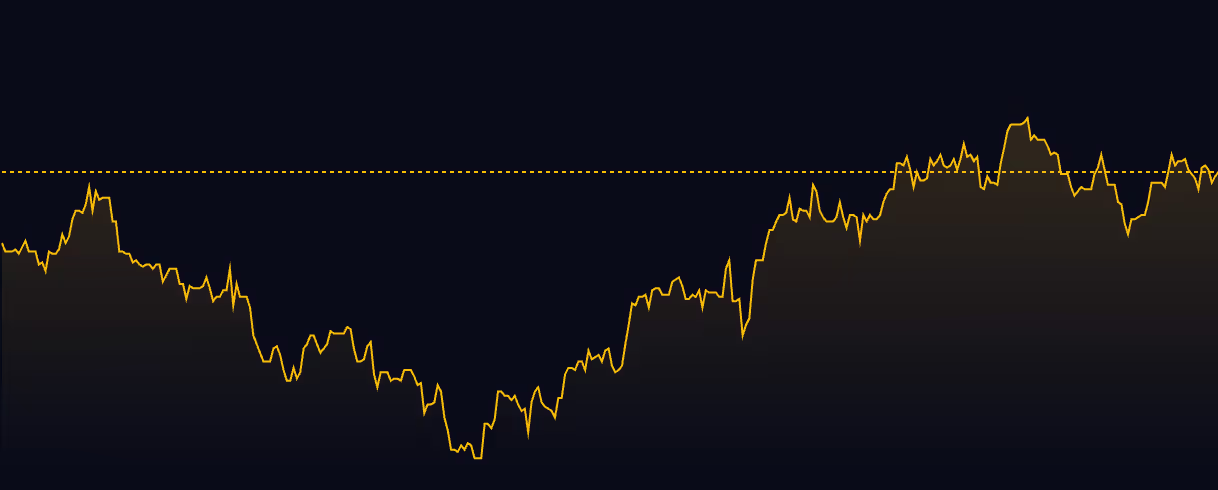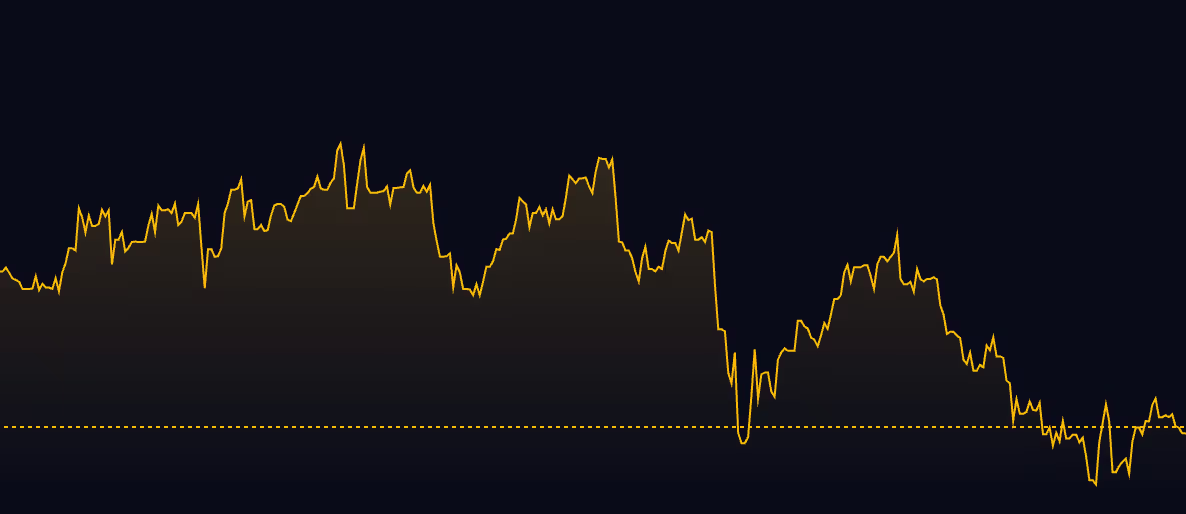When is the Autumn Budget?
The 2025 Autumn Budget will take place on Wednesday, 26 November 2025.
What is the Autumn Budget?
The Autumn Budget (officially just called the Budget) is a key financial and economic statement made by the UK government, usually delivered by the Chancellor of the Exchequer in the autumn (typically October or November).
What date is the Autumn Budget 2025?
The UK government has officially set the date for the Autumn Budget on Wednesday, 26 November 2025.
Traditionally, the Autumn Budget is delivered in late October or early November. For instance, the 2024 Autumn Budget was presented on 30 October 2024.
The Chancellor of the Exchequer, Rachel Reeves, also delivered a Spring Statement on 26 March 2025, which provided an update on the government's fiscal policies and economic forecasts.
Read more about the Spring Statement here: When is the Spring Statement?
What time is the Autumn Budget?
The Autumn Budget typically begins around 12:30 PM (UK time), immediately following Prime Minister’s Questions (PMQs) in the House of Commons. This has been the standard timing for delivering the Chancellor’s speech and announcements.
While the exact time for the 2025 Autumn Budget on Wednesday, 26 November 2025 hasn't been explicitly confirmed, it's expected to follow this long-standing pattern and commence at approximately 12:30 PM, right after PMQs.
What does the Autumn Budget include?
The Autumn Budget includes a comprehensive overview of the UK government's plans for taxation, public spending, and the economy. It’s one of the most significant financial announcements of the year, outlining the government's fiscal strategy.
Key components of the Autumn Budget:
- Economic forecasts:
- Projections on economic growth, inflation, employment, and public finances.
- Provided by the Office for Budget Responsibility (OBR).
- Taxation changes:
- Announcements on adjustments to Income Tax, National Insurance, Corporation Tax, VAT, Duties (e.g., fuel, alcohol), and other taxes.
- Introduction or removal of tax reliefs, allowances, and thresholds.
- Public spending plans:
- Allocation of funds to key sectors like healthcare (NHS), education, defence, infrastructure, social care, and transport.
- Spending reviews and departmental budgets.
- Government borrowing and debt strategy:
- Targets for government borrowing and national debt management.
- Plans to meet fiscal rules or balance the budget over the medium term.
- Cost of living measures:
- Initiatives to support households and businesses with rising costs (such as energy support schemes, benefits adjustments, minimum wage changes).
- Business support:
- Incentives or reliefs for businesses (e.g., business rates relief, investment allowances).
- Policies to boost innovation, exports, and productivity.
- Welfare and social policy:
- Changes to Universal Credit, pensions (including the State Pension triple lock), and other welfare benefits.
- Environmental and net-zero policies:
- Investment in green energy, decarbonisation efforts, and environmental taxation.
What is likely to happen in the Autumn Budget?
Here’s what’s likely to happen in the Autumn Budget 2025, following the recent Spring Statement and against a backdrop of fiscal challenges:
Addressing a significant fiscal shortfall
Chancellor Rachel Reeves faces pressure to plug a large budget deficit—analysts point to as much as £20–50 billion—driven by sluggish growth, high borrowing costs, and policy reversals.1
Potential tax reforms (without raising headline rates)
While Labour has pledged not to hike income tax, VAT, or National Insurance, it is likely to employ fiscal drag—freezing tax thresholds—and introduce targeted revenue measures like new levies on banks, gambling, or rental income.2
Continued focus on investment
Despite pressures for fiscal consolidation, Reeves aims to safeguard strategic investment—particularly in infrastructure, productivity, and defence—bolstering longer-term economic growth.3
Long-term borrowing cost concerns
Markets are unsettled—30-year gilt yields have hit levels not seen since 1998, raising the cost of government borrowing and intensifying scrutiny on fiscal discipline.4
More time given for economic outlook assessment
The Budget will be unusually late—scheduled for 26 November 2025—allowing the Office for Budget Responsibility (OBR) additional time to incorporate updated economic and borrowing forecasts.1
In summary, Labour is expected to strike a balancing act in the Autumn Budget: plugging a fiscal gap through targeted tax changes and threshold freezes, while seeking to shield key investments—all under keen market scrutiny and tighter financial constraints.
What date is the UK Budget announced?
The exact date of the UK Budget announcement varies each year and is set by the Chancellor of the Exchequer. There are typically two key fiscal events each year:
1. Spring Statement / Spring Budget
- Usually held in March.
- The 2025 Spring Statement is scheduled for 26 March 2025.
2. Autumn Budget
- Typically delivered in late October or early November.
- For example, the 2024 Autumn Budget took place on 30 October 2024.
For 2025, the UK government has officially set the date for the Autumn Budget on Wednesday, 26 November.
What will Labour do in the Autumn Budget?
Following the Spring Statement 2025, Labour, led by Chancellor Rachel Reeves, is expected to take decisive fiscal action in the Autumn Budget to address a substantial funding shortfall and growing economic pressures.
Prime candidates for the Budget include tax reforms and spending cuts to close a fiscal gap projected at around £40–50 billion. The government has ruled out raising income tax, VAT, or employees' National Insurance, but is exploring middle-ground measures (such as freezing tax bands, and boosting “sin” duties on items like gambling, tobacco, alcohol, and unhealthy foods) aiming to present them as fair and targeted adjustments.5
Simultaneously, there’s mounting pressure from investors to cut public spending, particularly welfare, as increasing borrowing costs (especially the surge in long-term gilt yields) are straining the UK's finances. Labour remains committed to its fiscal rules aiming for a current budget surplus by 2029‑30, but additional savings may be necessary to meet these targets.6
Another notable potential policy is the introduction of National Insurance on rental income, targeting landlords to raise revenue while navigating public criticism about potential impacts on tenants and housing affordability.7
Beyond fiscal consolidation, Labour seems poised to continue its strategic investments, especially in defence, infrastructure, and regional growth, although specific allocations remain to be detailed.8
What is the minimum wage in the UK Autumn Budget?
In the Autumn Budget 2024, Chancellor Rachel Reeves announced significant increases to the UK's minimum wage rates, effective from April 2025.9 The changes are as follows:
- National Living Wage (NLW): For workers aged 21 and over, the NLW will rise by 6.7%, increasing from £11.44 to £12.21 per hour.
- National Minimum Wage (NMW):
- National minimum wage for 18 to 20-year-olds: An increase from £8.60 to £10.00 per hour, marking a 16.3% rise.
- National minimum wage for under 18s and apprentices: A rise from £6.40 to £7.55 per hour.
Additionally, the government has expressed intentions to abolish the tiered NMW system, moving towards a single adult rate.10 This transition to a single rate will be implemented gradually, with specific timelines yet to be confirmed.
Rachel Reeves will announce any changes to minimum wage in the Autumn Budget 2024, on Wednesday, 26 November.
Will there be an Autumn Budget in 2025?
Yes, there will be an Autumn Budget in 2025. Chancellor Rachel Reeves has officially confirmed that it will be delivered on Wednesday, 26 November 2025, marking it as a late-year event.
Where can I read the Autumn Budget?
If you’d like to read the full upcoming Autumn Budget, here are some official and helpful sources:
GOV.UK – HM Treasury
The most reliable place is the UK government’s own Treasury website. They publish the full Autumn Budget documents, typically in multiple formats.11
OBR Economic and Fiscal Outlook (EFO)
Alongside the Budget, the Office for Budget Responsibility (OBR) publishes a detailed Economic and Fiscal Outlook (EFO). This includes independent forecasts and detailed costings of the Budget measures. The next release is scheduled for Autumn 2025.12
What does the Autumn Budget mean for the housing market?
1. Taxes on landlords and rental income
- The government is considering introducing National Insurance on rental income, potentially around 8%, which could raise up to £2 billion. This may squeeze landlord profits, prompting many to sell properties or push up rents.13
2. New property taxes and stamp duty changes
- A proposed annual property tax on homes valued over £500,000, and possible new capital gains tax rules on high-value properties, are creating uncertainty. This speculation is already slowing buyer activity, particularly in higher-priced markets.14
3. Cooling Housing Market Trends
- House price growth is decelerating, with only 2.1% annual increase and a 0.1% monthly decline reported in August.15
- Estate agents suggest market activity may further slow due to tax policy uncertainty.16
4. Strategic Housing Investments
- While not yet confirmed for 2025, previous budgets included £5 billion for affordable housing—something buyers watched closely. It remains to be seen if similar investment plans will return in the upcoming Autumn Budget.17
Summary:
The Autumn Budget is likely to tighten the rental market via new landlord taxes, introduce property levies that could deter buyers, and intensify pressure on housing affordability. With potential investment in affordable housing still uncertain, both homeowners and renters may face increased costs and reduced market flexibility.
What is the Autumn Budget in simple terms?
The Autumn Budget is when the UK government sets out its financial plans for the year ahead. It’s like the country’s money plan.
In simple terms, it covers:
- How much money the government will collect (mainly through taxes like income tax, capital gains tax, VAT, National Insurance Contributions, and business taxes).
- How much money the government will spend (on things like the NHS, schools, roads, and public services).
- Any changes to taxes or benefits.
- Updates on how the UK economy is doing and what’s expected in the future.
It’s announced by the Chancellor of the Exchequer and is one of the most important events in the government’s financial calendar.
This publication is intended for general information purposes only and should not be construed as financial, legal, tax, or other professional advice from Equals Money PLC or its subsidiaries and affiliates.
It is recommended to seek advice from a financial advisor, expert, or other professional. We do not make any representations, warranties, or guarantees, whether expressed or implied, regarding the accuracy, or completeness of the content in the publication.
Sources used for this article:
- Reuters – UK’s Reeves promises tight grip on public finances ahead of November 26 budget
- The Independent – Rachel Reeves outlines economic plans during PMQs
- Financial Times – Reeves outlines budget priorities ahead of autumn statement
- The Guardian – UK long-term borrowing costs hit 27-year high – business live
- Financial Times – Rachel Reeves prepares for first full budget as Chancellor
- Financial Times – Labour faces pressure over property tax speculation
- The Times – ‘We’re not considered working people,’ say angry landlords
- The Times – NIESR warns Reeves may be forced into tax rises
- Gov.uk – Autumn Budget 2024: GAD Technical Bulletin
- MSHB Legal – Key changes in the Autumn Budget 2024: Increases in wages and National Insurance costs
- HM Treasury – Official government page
- Office for Budget Responsibility (OBR)
- MoneyWeek – National Insurance: What landlords need to know about rental income tax
- MoneyWeek – Speculation around property tax fuels uncertainty in housing market
- Reuters – UK house prices unexpectedly fell in August, Nationwide data shows
- The Guardian – Property tax threat could slow down housing market, UK agents warn
- Tembo Money – What the Autumn Budget means for the housing market
Sources checked on 03/09/2025.




















